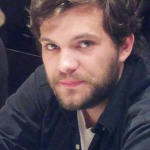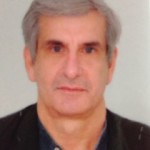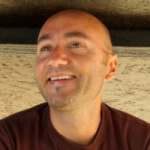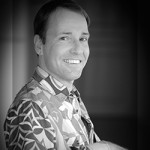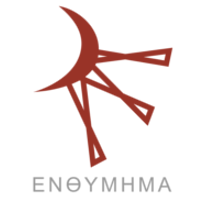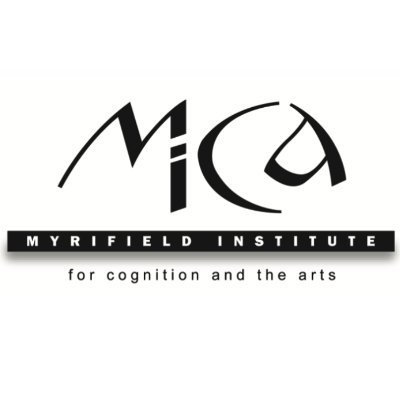Followers
 Andrea Benedetti
Andrea Benedetti
Postdoctoral Researcher of German Studies
Department of Humanities, University of Urbino
 Alberto G. Biuso is a research fellow of Theoretical Philosophy at the «Dipartimento di Scienze Umanistiche» at the University of Catania, where he teaches Philosophy of Mind and Sociology of Culture. He is a contributor, copy editor and member of the scientific committee of several reviews: Aut Aut, il Voltaire, Punti critici, Rivista di storia della Filosofia, Il Protagora, Discorsi, Prospettive Settanta, Archivio di storia della cultura, Nuova Secondaria, Alfabeta, Iride, MondOperaio, La Rivista dei Libri, Koiné, gli Argomenti umani, Rassegna di teologia, Informatica & Scuola, Diorama letterario, Libertaria, Società
Alberto G. Biuso is a research fellow of Theoretical Philosophy at the «Dipartimento di Scienze Umanistiche» at the University of Catania, where he teaches Philosophy of Mind and Sociology of Culture. He is a contributor, copy editor and member of the scientific committee of several reviews: Aut Aut, il Voltaire, Punti critici, Rivista di storia della Filosofia, Il Protagora, Discorsi, Prospettive Settanta, Archivio di storia della cultura, Nuova Secondaria, Alfabeta, Iride, MondOperaio, La Rivista dei Libri, Koiné, gli Argomenti umani, Rassegna di teologia, Informatica & Scuola, Diorama letterario, Libertaria, Società
e storia, Una città, Utopie Critique, Giornale della Filosofia, Medicina & Storia, ItaliaOggi, il Mattino, Gente di fotografia, Centonove, il manifesto, Rivista Italiana di Filosofia del Linguaggio, Giornale di metafisica, Rivista Internazionale di Filosofia e Psicologia. He is also the Scientific Director of the philosophy review Vita Pensata. He published the following books: L’antropologia di Nietzsche (Morano, 1995), Contro il Sessantotto (Guida, 1998; New edition increased and with the title Contro il Sessantotto. Saggio di antropologia, Villaggio Maori Edizioni, 2012), Antropologia e Filosofia (Guida, 2000), Cyborgsofia. Introduzione alla filosofia del computer (Il Pozzo di Giacobbe, 2004), Nomadismo e benedizione. Ciò che bisogna sapere prima di leggere Nietzsche (Di Girolamo Editore, 2006), Dispositivi semantici. Introduzione fenomenologica alla filosofia della mente (Villaggio Maori Edizioni, 2008), La mente temporale. Corpo Mondo Artificio (Carocci, 2009), Temporalità e Differenza (Olschki, 2013). His research focuses on the fundamental matter of temporality: its clarification would permit to go over dualisms -those between nature and culture, body and mind, innate and learned- for a
unitary comprehension -at the same time multiple – of the human, considered as a complex semantic device through which the matter understands itself.
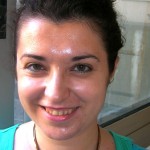 Lorella Bosco is Assistant Professor of German Literature at the University of Bari in Italy. After getting her degree in Classical Philology and German Literature in Italy, she did her PhD in Comparative Literature at the Freie Universität of Berlin (2001). Her dissertation, written under the supervision of Prof. Dr. Gert Mattenklott, examined the anticlassical tendencies widely characterizing the reception of ancient culture throughout 19th Century Germany. 2004 she was awarded a DAAD Scholarship. Since October 2010 she has been awarded an Alexander-von-Humboldt-Fellowship for experienced researches at the Freie Universität of Berlin for her research project about the modernist female writer and artist Emmy Ball-Hennings. Lorella Bosco’s main research interests are in the field of eighteenth and nineteenth-century German literature and thought, with particular reference to the reception of ancient culture in the Goethezeit and in Nietzsche’s work. She has written a book on this topic «‘Das furchtbar-schöne Gorgonenhaupt des Klassischen’. Deutsche Antikebilder (1755-1875)» published 2004 by Königshausen und Neumann in Germany. Her research areas also include German-Jewish Literature and German Avantgarde movements. Her book about conceptions of Orientalism in 19th and 20th century German-Jewish literature and culture is soon to be published by Bruno Mondadori in Italy.
Lorella Bosco is Assistant Professor of German Literature at the University of Bari in Italy. After getting her degree in Classical Philology and German Literature in Italy, she did her PhD in Comparative Literature at the Freie Universität of Berlin (2001). Her dissertation, written under the supervision of Prof. Dr. Gert Mattenklott, examined the anticlassical tendencies widely characterizing the reception of ancient culture throughout 19th Century Germany. 2004 she was awarded a DAAD Scholarship. Since October 2010 she has been awarded an Alexander-von-Humboldt-Fellowship for experienced researches at the Freie Universität of Berlin for her research project about the modernist female writer and artist Emmy Ball-Hennings. Lorella Bosco’s main research interests are in the field of eighteenth and nineteenth-century German literature and thought, with particular reference to the reception of ancient culture in the Goethezeit and in Nietzsche’s work. She has written a book on this topic «‘Das furchtbar-schöne Gorgonenhaupt des Klassischen’. Deutsche Antikebilder (1755-1875)» published 2004 by Königshausen und Neumann in Germany. Her research areas also include German-Jewish Literature and German Avantgarde movements. Her book about conceptions of Orientalism in 19th and 20th century German-Jewish literature and culture is soon to be published by Bruno Mondadori in Italy.
Mauricio Cheguhem Riani has studied the Master in Spanish and Latin American Literature, Literary Theory and Comparative Literature (University of Salamanca) during the academic year 2015-2016. His final master’s work focuses on the relationship between science and mysticism in Ernesto Cardenal’s Cosmic Canticle. He has been professor of Modern Literature at the University of Montevideo during the academic year 2016-2017 and invited as professor of Aesthetics at the Faculty of Theology of Uruguay. Right now he is a PhD student at the University of Salamanca and part of the ILICIA group (Literary Inscriptions of Science), directed by Amelia Gamoneda. His dissertation is focused on the relationship between poetry, epistemology and mathematics, especially in Latin American poets.
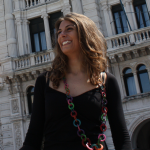 Valentina Cuccio is currently a postdoctoral researcher at the Department of Humanities, University of Palermo. In the past years, she has been working at the Berlin School of Mind and
Valentina Cuccio is currently a postdoctoral researcher at the Department of Humanities, University of Palermo. In the past years, she has been working at the Berlin School of Mind and
Brain, Humboldt University, at the Department of Neuroscience, University of Parma and at the
Department of Cognitive Science, Johns Hopkins University, Baltimore.
Cuccio’s research interests are highly interdisciplinary ranging from philosophy to neuroscience,
psychology and psycholinguistics. Starting from philosophical questions about mind and language,
she have been particularly interested to the study of language and cognition in pathologies such as
Williams syndrome, Specific Language Impairment, Autism or Deafness.
She is currently working on the topic of language and embodiment with particular regards to the
embodied nature of metaphors.
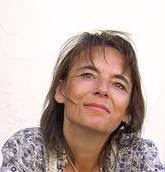 In her paintings the artist Milu – Michaela Lucie Dassow who lives in Endingen am Kaiserstuhl (Germany, Baden Württemberg) presents a direct linking of thoughts with picturesque expressiveness. Her paintings arise from impressions and experiences. Sometimes these are the everyday matters of life, but also events that have affected the lives of many people. Her pictures – as also she herself – are denying any rapid integration into specific categories and drawers with quiet persistence. The artist cannot be established in a single style. The viewer can immerse in a spacious, high-contrast image and character space, as an unknown external and also internal landscape. In her work, she leaves a balance between abstraction and figuration of which, however, the viewer is not forced upon especially, that there is only one possibility of interpretation. Perspective, colour and shape change depending on the lighting conditions and the location of the viewer. Again and again the viewer must enter into an intimate dialogue with the work to discover new details and to understand the whole picture. Since the beginning of her work she has consistently written to each of her paintings the creation story. These creation stories accompany each of her paintings. In today’s media-overloaded world she wants to give the viewer individual freedom intentionally. MILU does not dictate the interpretation of her paintings. For more information visit: www.art-milu.de
In her paintings the artist Milu – Michaela Lucie Dassow who lives in Endingen am Kaiserstuhl (Germany, Baden Württemberg) presents a direct linking of thoughts with picturesque expressiveness. Her paintings arise from impressions and experiences. Sometimes these are the everyday matters of life, but also events that have affected the lives of many people. Her pictures – as also she herself – are denying any rapid integration into specific categories and drawers with quiet persistence. The artist cannot be established in a single style. The viewer can immerse in a spacious, high-contrast image and character space, as an unknown external and also internal landscape. In her work, she leaves a balance between abstraction and figuration of which, however, the viewer is not forced upon especially, that there is only one possibility of interpretation. Perspective, colour and shape change depending on the lighting conditions and the location of the viewer. Again and again the viewer must enter into an intimate dialogue with the work to discover new details and to understand the whole picture. Since the beginning of her work she has consistently written to each of her paintings the creation story. These creation stories accompany each of her paintings. In today’s media-overloaded world she wants to give the viewer individual freedom intentionally. MILU does not dictate the interpretation of her paintings. For more information visit: www.art-milu.de
 Paola Di Mauro, Dr. phil., is research professor of German Studies at the Department of Cognitive Sciences, Educational and Cultural Studies (University of Messina). She is also a member of a number of national and international research groups at Catania University. The focus of her research touches the following areas: cognitive linguistics, metaphorology, psycholinguistics, topographical studies, visual culture, postmodernism and deconstructivism. She has held lectures and seminars on her main research fields at several Italian and foreign universities. She has written and published a number of articles on German language, culture and literature of the Twentieth century. Research periods, guest periods and visiting professorships: University of Vienna; University of Heidelberg; University of Bayreuth, University of Gent. Publications in recent years (selection):Visuelle Metaphern in der Werbung, in Di Meola C., Hornung A., Rega L. (ed.), Perspektiven Vier. Akten der 4. Tagung Deutsche Sprachwissenschaft in Italien (Rome, 4-6 February 2010), Frankfurt a. M., Lang, in printing; Creazioni linguistiche della schizofrenia. Le metafore nella scrittura di Ernst Herbeck, in Bucca A., Rosania N. (ed.), Gelosi sull’orlo di una crisi di nervi. Note ontologiche e psicopatologiche su un’ordinaria follia, Firenze, Le Lettere, 2011, 71-80; 29. Oktober 1929. Der Tag danach, in Knafl A. (ed.), Gedichte und Geschichte, Wien, Praesens (in printing); Emunah Omanut Imun. Ritrovare il triangolo ebraico Moni Ovadia. Colloquio con Paola Di Mauro, in Sampaolo G. (ed.), Kafka: ibridismi. Multilinguismo, trasposizioni, trasgressioni, Macerata, Quodlibet, 2010, 259-269; «La vista del nudo palcoscenico che, muto come noi, aspetta gli attori». Il caso Kafka di Moni Ovadia e Roberto Andò, in Sampaolo G. (ed.), Kafka: ibridismi. Multilinguismo, trasposizioni, trasgressioni, Macerata, Quodlibet, 2010, 269-284; Il telegrafo senza fili. Un esempio di traduzione intersemiotica della notizia del terremoto di Messina, in «Dalla notizia alla solidarietà internazionale», (Messina 25-26 February 2009), Reggio Calabria, Edizioni Città del Sole, 2010, 93-109; Le aporie della duplicità, in Amato P., Dini T., Primi P., Salza L., Vinale A. (ed.), La singularité du générique. Biopolitique et communisme - La singolarità del generico. Biopolitica e comunismo, in «La Rosa de Personne - La Rosa di Nessuno», 5/2010, 273-284; Der verfälschte Blick Eine übersetzungskritische Diskussion am Beispiel einer Übersetzung von Kafkas Betrachtung ins Italienische, in Knafl A. (ed.), Über(ge)setzt. Spuren zur österreichischen Literatur im fremdsprachigen Kontext, Wien, Praesens 2010, 89-106; Da-dandy: l’intellettuale dada contro la guerra, in «Paragrafo», IV, 2008, 55-71.
Paola Di Mauro, Dr. phil., is research professor of German Studies at the Department of Cognitive Sciences, Educational and Cultural Studies (University of Messina). She is also a member of a number of national and international research groups at Catania University. The focus of her research touches the following areas: cognitive linguistics, metaphorology, psycholinguistics, topographical studies, visual culture, postmodernism and deconstructivism. She has held lectures and seminars on her main research fields at several Italian and foreign universities. She has written and published a number of articles on German language, culture and literature of the Twentieth century. Research periods, guest periods and visiting professorships: University of Vienna; University of Heidelberg; University of Bayreuth, University of Gent. Publications in recent years (selection):Visuelle Metaphern in der Werbung, in Di Meola C., Hornung A., Rega L. (ed.), Perspektiven Vier. Akten der 4. Tagung Deutsche Sprachwissenschaft in Italien (Rome, 4-6 February 2010), Frankfurt a. M., Lang, in printing; Creazioni linguistiche della schizofrenia. Le metafore nella scrittura di Ernst Herbeck, in Bucca A., Rosania N. (ed.), Gelosi sull’orlo di una crisi di nervi. Note ontologiche e psicopatologiche su un’ordinaria follia, Firenze, Le Lettere, 2011, 71-80; 29. Oktober 1929. Der Tag danach, in Knafl A. (ed.), Gedichte und Geschichte, Wien, Praesens (in printing); Emunah Omanut Imun. Ritrovare il triangolo ebraico Moni Ovadia. Colloquio con Paola Di Mauro, in Sampaolo G. (ed.), Kafka: ibridismi. Multilinguismo, trasposizioni, trasgressioni, Macerata, Quodlibet, 2010, 259-269; «La vista del nudo palcoscenico che, muto come noi, aspetta gli attori». Il caso Kafka di Moni Ovadia e Roberto Andò, in Sampaolo G. (ed.), Kafka: ibridismi. Multilinguismo, trasposizioni, trasgressioni, Macerata, Quodlibet, 2010, 269-284; Il telegrafo senza fili. Un esempio di traduzione intersemiotica della notizia del terremoto di Messina, in «Dalla notizia alla solidarietà internazionale», (Messina 25-26 February 2009), Reggio Calabria, Edizioni Città del Sole, 2010, 93-109; Le aporie della duplicità, in Amato P., Dini T., Primi P., Salza L., Vinale A. (ed.), La singularité du générique. Biopolitique et communisme - La singolarità del generico. Biopolitica e comunismo, in «La Rosa de Personne - La Rosa di Nessuno», 5/2010, 273-284; Der verfälschte Blick Eine übersetzungskritische Diskussion am Beispiel einer Übersetzung von Kafkas Betrachtung ins Italienische, in Knafl A. (ed.), Über(ge)setzt. Spuren zur österreichischen Literatur im fremdsprachigen Kontext, Wien, Praesens 2010, 89-106; Da-dandy: l’intellettuale dada contro la guerra, in «Paragrafo», IV, 2008, 55-71.
Silvio Ferraresi is currently scientific translator – from english, german and french languages – for the journals Le Scienze and Mind, and consultant and translator for the publishing houses Adelphi, Codice, Cortina, Einaudi and Mondadori.
Ferraresi got a PhD in Neuroscience at the University of Turin, studying the molecular/cellular mechanisms of neural development. Since then, his focus has been addressed at the intersection between brain science and humanities as well. This interest motivated him to edit the italian publication of Neural Darwinism by Gerald Edelman, for Einaudi editore. After this title, Ferraresi translated about fifty books (by Antonio Damasio, Gerald Edelman, Semir Zeki, Giulio Tononi, Michael Gazzaniga, Stanislas Dehaene, Jean-Pierre Changeux, Terrence Deacon and Michael Graziano, among other authors) and more than five hundred articles, mainly about neuroscience and psychology.
Ferraresi is deeply motivated to transmit this knowledge acquired at the forefront of neuroscience and humanities in a dedicated academic course, tentatively named Neurophilosophy.
Here is something more about me:
https://www.youtube.com/watch?v=z1dRq76jX0Y&t=316s
https://silvioferraresi.wordpress.com/darwinismo-neurale/
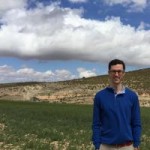 Benito García Valero is lecturer of Theory of Literature and Comparative Literature at the University of Alicante. He did his PhD on the commonalities between the world views derived from the interpretations of quantum physics and magical realism, applied to contemporary Japanese literature. His research interests today are the relations between science and literature, cognitive studies and the new genres of the fantastic.
Benito García Valero is lecturer of Theory of Literature and Comparative Literature at the University of Alicante. He did his PhD on the commonalities between the world views derived from the interpretations of quantum physics and magical realism, applied to contemporary Japanese literature. His research interests today are the relations between science and literature, cognitive studies and the new genres of the fantastic.
Projects worked in Catania: The neurohermeneutic approach into the anthropological system of symbols described by Gilbert Durand and Application of neurohermeneutics to the design of new methodological practices for teaching Theory of Literature and for the creation of the laboratory ‘Cuerpo y símbolo’ (https://laboratoriocuerpoysimbolo.com/).
Benito says:My stay in Catania with the Neurohumanities team was a very enriching experience in every aspect. The leading intellectual activity of the professors Gambino and Pulvirenti has been granting Catania the condition of being an essential hub of neurohumanities today, with special recognition to cognitive studies and hermeneutics as they have been reformulated in their neurohermeneutic approach. Apart from the huge impact that my four-months stay had in my research, I also need to mention the extraordinary human quality of the team composing the NHS, given their care and attention during my visit.
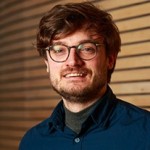 Paolo Gervasi is a Marie Skłodowska-Curie Research Fellow at the Queen Mary University in London, where he works on a research project on the history of caricature between literature and the visual arts. He has published two monographs: the recent Vita contro letteratura. Cesare Garboli: un’idea della critica (luca sossella editore, 2018) and La forma dell’eresia. Giacomo Debenedetti 1922-1934: storia di un inizio (Ets, 2012)). He deals with history and theory of criticism, and has written essays on contemporary Italian literature and Renaissance culture, on the relationship between literature and neurocognitive sciences, on digital humanities projects to which he collaborated during his three years as a researcher at the CTL laboratory of the Scuola Normale Superiore in Pisa. He collaborates with blogs and online magazines, writing mainly about the relationship between science and literature. He maintains a personal blog related to his research, which is called Misshaping by Words: https://blogs.history.qmul.ac.uk/litcaricature/
Paolo Gervasi is a Marie Skłodowska-Curie Research Fellow at the Queen Mary University in London, where he works on a research project on the history of caricature between literature and the visual arts. He has published two monographs: the recent Vita contro letteratura. Cesare Garboli: un’idea della critica (luca sossella editore, 2018) and La forma dell’eresia. Giacomo Debenedetti 1922-1934: storia di un inizio (Ets, 2012)). He deals with history and theory of criticism, and has written essays on contemporary Italian literature and Renaissance culture, on the relationship between literature and neurocognitive sciences, on digital humanities projects to which he collaborated during his three years as a researcher at the CTL laboratory of the Scuola Normale Superiore in Pisa. He collaborates with blogs and online magazines, writing mainly about the relationship between science and literature. He maintains a personal blog related to his research, which is called Misshaping by Words: https://blogs.history.qmul.ac.uk/litcaricature/
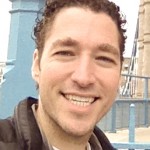 David R. Gruber is an Assistant Professor at City University of Hong Kong. His research bridges rhetoric of neuroscience, neuro-humanities, and visual cultures of science. He participates in several interdisciplinary, grant-funded projects using digital media installations to explore the use of neuroscience research in the humanities. A recent example includes the Gesture/Language/Mirror project with Dr. Daniel Howe, published at MediaCommons (http://mediacommons.futureofthebook.org/tne/pieces/gesture-language-mirror). David is also the creator and manager of Neurohuman.com, a neuro-humanities resource site. Recent scholarly publications include: “Medicalization of the post-museum: Interactivity and diagnosis at the Brain and Cognition Exhibit” Journal of Medical Humanities (forthcoming, 2015); “Mirror neurons in a Group Analysis Hall of Mirrors: ‘Translation’ as a rhetorical approach to neuro-disciplinary writing” Technical Communication Quarterly (23.3, 2014); “Persuasive images in popular science: Testing judgments of scientific reasoning and credibility” Public Understanding of Science (co-authored with Jacob Dickerson 21.8, 2012).
David R. Gruber is an Assistant Professor at City University of Hong Kong. His research bridges rhetoric of neuroscience, neuro-humanities, and visual cultures of science. He participates in several interdisciplinary, grant-funded projects using digital media installations to explore the use of neuroscience research in the humanities. A recent example includes the Gesture/Language/Mirror project with Dr. Daniel Howe, published at MediaCommons (http://mediacommons.futureofthebook.org/tne/pieces/gesture-language-mirror). David is also the creator and manager of Neurohuman.com, a neuro-humanities resource site. Recent scholarly publications include: “Medicalization of the post-museum: Interactivity and diagnosis at the Brain and Cognition Exhibit” Journal of Medical Humanities (forthcoming, 2015); “Mirror neurons in a Group Analysis Hall of Mirrors: ‘Translation’ as a rhetorical approach to neuro-disciplinary writing” Technical Communication Quarterly (23.3, 2014); “Persuasive images in popular science: Testing judgments of scientific reasoning and credibility” Public Understanding of Science (co-authored with Jacob Dickerson 21.8, 2012).
Maja Gutman is a Research Associate, currently collaborating with Electrical Engineering department at the University of California, Los Angeles (UCLA). Her academic background consists of degrees from University of Ljubljana (Sociology of Culture and Political Science), and postgraduate studies largely within the Humanities, with emphasis on Continental philosophy, Psychoanalytic studies, Cultural/Media studies and Consciousness studies. She completed her PhD in Anthropology in Everyday Life – Media Studies, at Alma Mater Europaea (Institutum Studiorum Humanitatis) Ljubljana, Slovenia (2016). Her current research is focused on theoretical aspects of conscious and unconscious mind and its indirect behavioral expressions. The goal of the collaboration is to integrate various disciplines from humanities in the field of quantitative study of altered states of consciousness with recent advances in data analytics. To be able to fully develop new tools and methodologies for observing and measuring reports from altered states, Maja has started working on other research topics, such as contemporary subjectivity in new media environments (virtual reality in particular), the various aspects of immersion, and the transformational aspects of subjectivity in multi-sensory environments. All research topics take into account both philosophical and neuroscientific approaches, along with the various aspects from cognitive science.
 Daniele Malfitana
Daniele Malfitana
Director of Institute of archeological heritage – monuments and sites
C.N.R. – National Research Council

Brook Miller is Associate Professor of English at the University of Minnesota, Morris, USA. He is the author of America in the British Imaginary in Turn-of-the-Twentieth-Century Literature (2010) andSelf-Consciousness in Modern British Fiction. His current research focuses on the relation between narrative identity and embodied cognition.
Gregory Minisale is Senior Lecture in Art History at the University of Auckland (New Zeland). He studied art history and Italian at the University of Sussex. He completed his Masters and PhD in art history at the School of African and Oriental Art, University of London on the subject of cross-cultural encounters in art. He has taught at the Savannah College of Art and Design, GA USA and London Metropolitan University. He is an art historian specialising in critical theory and neuroscientic and psychological approaches to vision in art and design. He had led curatorial and pedagogical projects on vision science, eye tracking and art. He has published widely on these topics and teach them to undergraduates and postgraduates at the University of Auckland.
 Anja Müller-Wood is professor of English Literature at Johannes Gutenberg-Universität of Mainz. Her main areas of research are the literature and culture of early modern England (Jacobean drama, revenge tragedy, theatre culture in general) as well as twentieth-century and contemporary Anglophone literatures. These specialisations are illustrated by her monographs Angela Carter: Identity Constructed/Deconstructed (1997) and The Theatre of Civilized Excess: New Perspectives on Jacobean Tragedy (2007) and numerous articles in international peer-reviewed journals and book collections. She has written about authors such as J.G. Ballard, Jim Crace, Sarah Kane, John Marston, Ian McEwan and Thomas Nashe. Among the topics covered in her work are: representations of violence in early modern drama and contemporary Anglophone literatures; identity, subjectivity and gender; ideology; history, historiography and memory. An overarching interest of hers which brings together these diverse topics is the reception of literature, especially the question of how authors, by the use of particular stylistic features, exploit cognitive predispositions on the part of the readers. She is currently working on a long-term project revisiting reader reception theory from the perspective of the cognitive sciences and evolutionary psychology, an interest also illustrated by several (published and forthcoming) articles on Angela Carter, George Gissing, James Joyce, Andrea Levy and William Shakespeare. She is also working on the nature of narrative more generally. She has co-edited a special issue of the journal Studies in the Literary Imagination entitled “Biological Constraints on the Literary Imagination”, organised several conference panels on related topics and is a member of the editorial board of the journal of the Association for the Study of Ethical Behavior/Evolutionary Biology (ASEBL). These concerns are furthermore reflected in her long-standing interest in exploring the interface between literary scholarship and linguistics. Having cooperated in the past with linguist colleagues in research and teaching, she founded the interdisciplinary Graduate Research Group Literary Linguistics together withProf. Anneli Sarhimaa in 2009, as well as, more recently, the DFG-funded Open Access International Journal of Literary Linguistics, which she edits together with Anneli Sarhimaa and Christoph Unger. She has recently edited a special issue of the journal Language and Dialogue on the topic of “Literary Linguistics.” Anja Müller-Wood is senior member of the Gutenberg Akademie and mentor in charge (“federführende Vertrauensdozentin”) of the Studienstiftung des Deutschen Volkes in Mainz. She is interested in how this first-person data can collaboratively enrich current third-person scientific research in areas such as cognition, microbiome study, and cardio research. Also, she is interested in how this work might contribute to consciousness studies, therapy, dance research, performance practice, studies in affective response, agency, empathy and more. As a maker of art, Ms. Bell has consistently found interest in the strength of exposed vulnerabilities, authenticity, vigorous research and humor. Her work is rooted in an endless curiosity of human experience and a belief in human connection. She studies and teaches somatic movement and bodywork, frequently instigating projects and experiments with both trained and untrained performers. She has worked with countless, astounding artists in professional and ‘underground’ contexts in New Orleans, Brooklyn, the Blue Ridge Mountains, Bread and Puppet Theater (US), as well as working internationally (Puerto Rico, Germany, Canada, Palestine, Greece and Slovenia) – creating music, theater, dance, puppet shows, video, and creations which do not quite fit into a genre.
Anja Müller-Wood is professor of English Literature at Johannes Gutenberg-Universität of Mainz. Her main areas of research are the literature and culture of early modern England (Jacobean drama, revenge tragedy, theatre culture in general) as well as twentieth-century and contemporary Anglophone literatures. These specialisations are illustrated by her monographs Angela Carter: Identity Constructed/Deconstructed (1997) and The Theatre of Civilized Excess: New Perspectives on Jacobean Tragedy (2007) and numerous articles in international peer-reviewed journals and book collections. She has written about authors such as J.G. Ballard, Jim Crace, Sarah Kane, John Marston, Ian McEwan and Thomas Nashe. Among the topics covered in her work are: representations of violence in early modern drama and contemporary Anglophone literatures; identity, subjectivity and gender; ideology; history, historiography and memory. An overarching interest of hers which brings together these diverse topics is the reception of literature, especially the question of how authors, by the use of particular stylistic features, exploit cognitive predispositions on the part of the readers. She is currently working on a long-term project revisiting reader reception theory from the perspective of the cognitive sciences and evolutionary psychology, an interest also illustrated by several (published and forthcoming) articles on Angela Carter, George Gissing, James Joyce, Andrea Levy and William Shakespeare. She is also working on the nature of narrative more generally. She has co-edited a special issue of the journal Studies in the Literary Imagination entitled “Biological Constraints on the Literary Imagination”, organised several conference panels on related topics and is a member of the editorial board of the journal of the Association for the Study of Ethical Behavior/Evolutionary Biology (ASEBL). These concerns are furthermore reflected in her long-standing interest in exploring the interface between literary scholarship and linguistics. Having cooperated in the past with linguist colleagues in research and teaching, she founded the interdisciplinary Graduate Research Group Literary Linguistics together withProf. Anneli Sarhimaa in 2009, as well as, more recently, the DFG-funded Open Access International Journal of Literary Linguistics, which she edits together with Anneli Sarhimaa and Christoph Unger. She has recently edited a special issue of the journal Language and Dialogue on the topic of “Literary Linguistics.” Anja Müller-Wood is senior member of the Gutenberg Akademie and mentor in charge (“federführende Vertrauensdozentin”) of the Studienstiftung des Deutschen Volkes in Mainz. She is interested in how this first-person data can collaboratively enrich current third-person scientific research in areas such as cognition, microbiome study, and cardio research. Also, she is interested in how this work might contribute to consciousness studies, therapy, dance research, performance practice, studies in affective response, agency, empathy and more. As a maker of art, Ms. Bell has consistently found interest in the strength of exposed vulnerabilities, authenticity, vigorous research and humor. Her work is rooted in an endless curiosity of human experience and a belief in human connection. She studies and teaches somatic movement and bodywork, frequently instigating projects and experiments with both trained and untrained performers. She has worked with countless, astounding artists in professional and ‘underground’ contexts in New Orleans, Brooklyn, the Blue Ridge Mountains, Bread and Puppet Theater (US), as well as working internationally (Puerto Rico, Germany, Canada, Palestine, Greece and Slovenia) – creating music, theater, dance, puppet shows, video, and creations which do not quite fit into a genre.
 Afonso Carlos Neves is Coordinator of the Neurohumanities Section of the Department of Neurology of Federal University of Sao Paulo (Unifesp), Brazil, since 2010. He is professor of Neurology at that Department and professor of Medicine at the University Cidade de Sao Paulo (Unicid). From 1985 to 1988 he organized a group of health professionals around “Medicine and Humanism”. In 2010, he started to work with the Neurohumanities Section, with several activities.
Afonso Carlos Neves is Coordinator of the Neurohumanities Section of the Department of Neurology of Federal University of Sao Paulo (Unifesp), Brazil, since 2010. He is professor of Neurology at that Department and professor of Medicine at the University Cidade de Sao Paulo (Unicid). From 1985 to 1988 he organized a group of health professionals around “Medicine and Humanism”. In 2010, he started to work with the Neurohumanities Section, with several activities.
https://www.spdm.org.br/a-empresa/conheca-a-spdm/memoria-spdm/item/3808-dr-afonso-carlos-neves
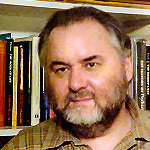 Nigel J.T. Thomas is currently working as an independent scholar. He has formerly taught at: The University of Leeds; The California Institute of Technology; California State University, Los Angeles; Rio Hondo College; California State University, Fullerton; and Woodbury University; and was a Visiting Scholar in Psychology at the University of California, Davis. He holds bachelor’s degrees in Biochemistry and in Humanities, and a Postgraduate Diploma and a Ph.D. in the History and Philosophy of Science. During his graduate studies he worked with some of the pioneers of the scientific study of consciousness: U.T. Place, Thomas Natsoulas, and Charles Tart. His research is focused on three interrelated areas: (1) the nature of the human imagination, as approached from a multidisciplinary perspective drawing on conceptual analysis, the history of thought (including aesthetic and literary views about the imagination), and contemporary cognitive science and cognitive neuroscience; (2) the nature and cognitive and neural mechanisms of mental imagery (and the history of theories and conceptions of imagery), where he defends a theory of imagery as arising from directed, top-down, efferent activity within the brain, and the embodied action of the organism; and (3) the hard problems of consciousness and intentionality, also envisaged as arising from enactive, top-down processes both within the brain and the soma, ultimately arising from spontaneously generated patterns of neural activity (as observed, for instance, in default mode network activity). Publications include: “Experience and Theory as Determinants of Attitudes Towards Mental Representation: The Case of Knight Dunlap and the Vanishing Images of J.B. Watson” [American Journal of Psychology,102 (1989) pp. 395-412]; “Imagery and the Coherence of Imagination: A Critique of White” [Journal of Philosophical Research, 22 (1997) pp. 95-127]; “”A Stimulus to the Imagination” [Psyche, 3 (1997): http://www.theassc.org/files/assc/2287.pdf]; “Zombie Killer” [In S.R. Hameroff, A.W. Kaszniak, & A.C. Scott (Eds.) (1998), Toward a Science of Consciousness II: The Second Tucson Discussions and Debates (pp. 171-177), Cambridge, MA: MIT Press]; “Are Theories of Imagery Theories of Imagination? An Active Perception Approach to Conscious Mental Content” [Cognitive Science, 23 (1999) pp. 207-245]; “Color Realism: Toward a Solution to the ‘Hard Problem’” [Consciousness and Cognition, 10 (2001) pp. 140-145]; “Mental Imagery, Philosophical Issues About” [In L. Nadel (Ed.) (2003), Encyclopedia of Cognitive Science (Vol. 2, pp. 1147-1153), London: Nature Publishing]; “Fantasi, Eliminativisme og Bevidsthedens Forhistorie” [Slagmark: Tidsskrift for Idéhistorie, 46 (2006) pp. 15-31]; “Visual Imagery and Consciousness” [In W.P. Banks (Ed.) (2009) Encyclopedia of Consciousness (Vol. 2, pp. 445-457). Oxford: Academic Press/Elsevier]; “Mental Imagery” [In E.N. Zalta (Ed.) (2013), The Stanford Encyclopedia of Philosophy: (http://plato.stanford.edu/entries/mental-imagery/)Stanford,CA: CSLI].
Nigel J.T. Thomas is currently working as an independent scholar. He has formerly taught at: The University of Leeds; The California Institute of Technology; California State University, Los Angeles; Rio Hondo College; California State University, Fullerton; and Woodbury University; and was a Visiting Scholar in Psychology at the University of California, Davis. He holds bachelor’s degrees in Biochemistry and in Humanities, and a Postgraduate Diploma and a Ph.D. in the History and Philosophy of Science. During his graduate studies he worked with some of the pioneers of the scientific study of consciousness: U.T. Place, Thomas Natsoulas, and Charles Tart. His research is focused on three interrelated areas: (1) the nature of the human imagination, as approached from a multidisciplinary perspective drawing on conceptual analysis, the history of thought (including aesthetic and literary views about the imagination), and contemporary cognitive science and cognitive neuroscience; (2) the nature and cognitive and neural mechanisms of mental imagery (and the history of theories and conceptions of imagery), where he defends a theory of imagery as arising from directed, top-down, efferent activity within the brain, and the embodied action of the organism; and (3) the hard problems of consciousness and intentionality, also envisaged as arising from enactive, top-down processes both within the brain and the soma, ultimately arising from spontaneously generated patterns of neural activity (as observed, for instance, in default mode network activity). Publications include: “Experience and Theory as Determinants of Attitudes Towards Mental Representation: The Case of Knight Dunlap and the Vanishing Images of J.B. Watson” [American Journal of Psychology,102 (1989) pp. 395-412]; “Imagery and the Coherence of Imagination: A Critique of White” [Journal of Philosophical Research, 22 (1997) pp. 95-127]; “”A Stimulus to the Imagination” [Psyche, 3 (1997): http://www.theassc.org/files/assc/2287.pdf]; “Zombie Killer” [In S.R. Hameroff, A.W. Kaszniak, & A.C. Scott (Eds.) (1998), Toward a Science of Consciousness II: The Second Tucson Discussions and Debates (pp. 171-177), Cambridge, MA: MIT Press]; “Are Theories of Imagery Theories of Imagination? An Active Perception Approach to Conscious Mental Content” [Cognitive Science, 23 (1999) pp. 207-245]; “Color Realism: Toward a Solution to the ‘Hard Problem’” [Consciousness and Cognition, 10 (2001) pp. 140-145]; “Mental Imagery, Philosophical Issues About” [In L. Nadel (Ed.) (2003), Encyclopedia of Cognitive Science (Vol. 2, pp. 1147-1153), London: Nature Publishing]; “Fantasi, Eliminativisme og Bevidsthedens Forhistorie” [Slagmark: Tidsskrift for Idéhistorie, 46 (2006) pp. 15-31]; “Visual Imagery and Consciousness” [In W.P. Banks (Ed.) (2009) Encyclopedia of Consciousness (Vol. 2, pp. 445-457). Oxford: Academic Press/Elsevier]; “Mental Imagery” [In E.N. Zalta (Ed.) (2013), The Stanford Encyclopedia of Philosophy: (http://plato.stanford.edu/entries/mental-imagery/)Stanford,CA: CSLI].
His web site, giving access to most of his work, is at http://www.imagery-imagination.com/
PhD, Chair, Dept. of World Languages & Cultures
Montclair State University
Antonella Pasculli is Assistant Professor of Criminal law at the University of Bari in Italy. She did her PhD in Criminal Law and Organized Crime at the University of Bari in Italy (2004). Her first book argued the corporate liability in Italy (Cacucci, 2005). As Visiting Distinguish Researcher at School of Law of Birmingham U.K. (2007) M. Antonella Pasculli examined the comparative tendencies characterizing the corporate criminal liability under the supervision of Stephen Shute, Professor of Criminal Law and Criminal Justice. She has been awarded an International-Fellowship for experienced researches at Top Research Course Marie Curie at the Universiteit Leiden -Campus Den Haag Grotius, Centre for International Legal Studies, under the supervision of prof. C. Stahn and prof. Larissa van den Herik, with the presentation of research proposal on “the fragmentation and the diversification of international criminal law in a global society”( 20-31 October 2008/ March 2009). M. Antonella Pasculli ’s main research interests are in the field of international criminal law and organized crime. She has written a second book on the topic of Universal Jurisdiction (Una Umanità, Una Giustizia. Contributo allo studio sulla giurisdizione penale universale, CEDAM, 2011). Her research areas also include Law and Literature and Neuroscience.onograph on Pavese and a volume of essays on literature and theology well as an essay on narratology in the journal “Testo“.
Jean-François Vernay is the author of four academic monographs in Literary Studies. The French edition of The Seduction of Fiction: A Plea for Putting Emotions Back into Literary Interpretation (Palgrave Macmillan, 2016) was shortlisted for a French scholarly Prize (Prix du Savoir et de la Recherche). Hisnew essay on the consumption of fiction, literary theory and cognitive literary criticism was released in April 2019 by Paris-based publisher Hermann under the title of La séduction de la fiction. He nurtures a vested interest in the Neurohumanities and blogs at: http://jean-francoisvernay.
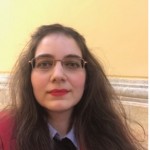 National and Kapodistrian University of Athens, Greece
National and Kapodistrian University of Athens, Greece
E-mail: nikzamp@phil.uoa.gr
Dr. Nikoleta Zampaki is Postdoctoral Researcher at the Faculty of Philology of the National and Kapodistrian University of Athens in Greece. She earned her PhD in Modern Greek Literature from the National and Kapodistrian University of Athens in Greece. She was Instructor at the Utah University in the U.S.A. Her disciplines are the Environmental Humanities, Posthumanities, Digital Humanities and Comparative Literature. She is Associate and Managing Editor at the scientific journal Ecokritike and current member of the Education Team of V.I.N.E. at Glenn Research Center of NASA. She is Series Editor of the Exeter Studies in Environmental Humanities. Past, Present and Future Econarratives at University of Exeter Press and co-Editor of the book series Posthumanities and Citizenship Futures at Rowman & Littlefield. Research Website: https://en-uoa-gr.academia.edu/NikoletaZampaki


